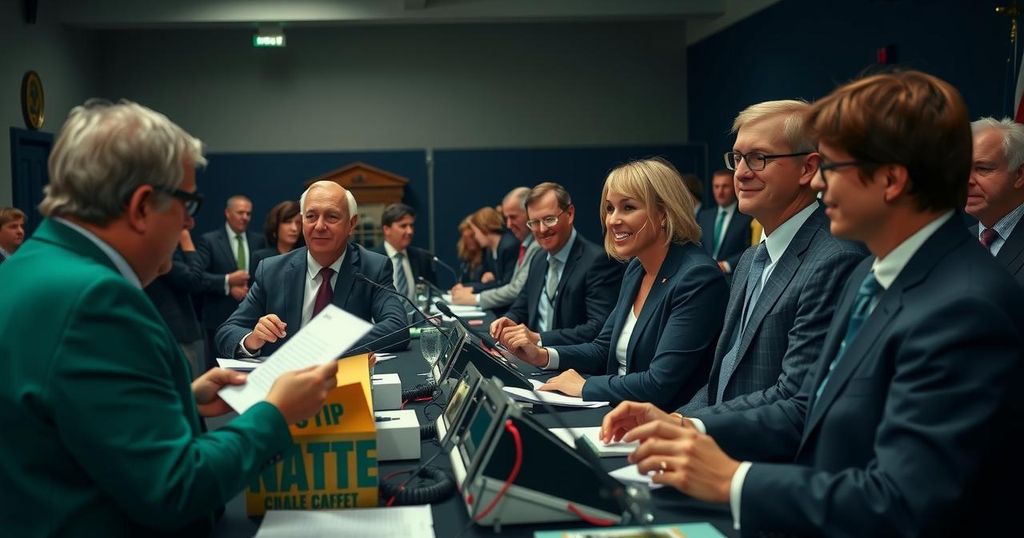Vote Counting Begins in Ireland’s 2024 General Election Amid Party Rivalry

Counting has begun in Ireland’s 2024 General Election, revealing a close contest among three major parties: Fine Gael, Fianna Fail, and Sinn Fein. An exit poll indicates Fine Gael at 21%, Fianna Fail at 19.5%, and Sinn Fein at 21.1%. The outcome, likely requiring coalition negotiations, underscores pressing topics such as the housing crisis and the cost of living, influencing voter sentiment.
Counting has commenced in Ireland’s 2024 General Election, where three major political parties are competing for dominance. The initial exit poll indicates that support is nearly evenly distributed among Fine Gael, Fianna Fail, and Sinn Fein, with estimated backing of 21% for Fine Gael, 19.5% for Fianna Fail, and 21.1% for Sinn Fein. This close contest has raised expectations for potentially protracted coalition negotiations, as the nation navigates complex proportional representation electoral systems.
As ballot counting began at 9 a.m. on Saturday, November 30, 2024, the focus shifted to the implications of voter sentiment amid challenging discussions surrounding the cost of living and housing crises. The election campaign highlighted these pressing issues, reflecting the public’s growing concerns during a time marked by global instability and rising living costs.
Historically, Fine Gael and Fianna Fail have dominated Irish politics for over a century, sharing similar policies yet stemming from rival factions established during Ireland’s civil conflict in the 1920s. Although they may form a coalition again, they would require additional support from smaller parties or independent representatives to secure a majority in the Dáil, the lower house of Parliament.
Sinn Fein, having surged in popularity during the 2020 elections, could potentially position itself as the largest party in the Dáil this time, although its ability to forge a coalition remains uncertain due to the reluctance of Fine Gael and Fianna Fail to work alongside it given its history and leftist policies.
The outcome of the counting process will reveal whether the electorate has opted for continuity or a shift in governance, particularly in light of the lingering economic challenges and rising public discontent.
The 2024 General Election in Ireland marks a significant moment for the nation’s political landscape, characterized by a close race among its three largest parties: Fine Gael, Fianna Fail, and Sinn Fein. The election’s backdrop includes pressing issues such as the housing crisis and immigration, which have become focal points during the campaign. The established political powers are confronted with emerging challenges, as Sinn Fein seeks to increase its influence after a notable performance in the previous election. Forming a coalition government post-election will require navigating a complex political terrain and negotiating alliances with smaller parties or independents, all amidst a public debate influenced by recent global events and economic pressures.
In conclusion, counting in Ireland’s General Election has revealed a tightly contested battle among Fine Gael, Fianna Fail, and Sinn Fein. The rise of Sinn Fein signals a potential shift in Irish politics, demanding careful negotiation for coalition formation if no party achieves a clear majority. The overarching concerns regarding the cost of living and housing have significantly shaped voter preferences, indicating that the incoming government will need to address these critical issues effectively to maintain public confidence.
Original Source: apnews.com







